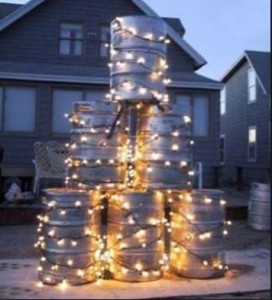Bayou
Informant info Brian Flint, age 23, from Metairie, LA. Collected May 22, 2016 via iPhone.
Verbal Lore: Slang
Language: English, Choctaw
Country of Origin: United States of America
Social / Cultural Context: The term is used in everyday English language, it has been adopted as a geographical term to specifically refer to the waterways in Louisiana and other Gulf states, and can be found on any english language map of the region.
“ The next one is ‘bayou.’ You might have heard that one before. It comes from the Choctaw word for slow-moving water. And Choctaw is an Indian tribe that used to live in that area of the country. And, it’s a slow- moving body of water that is synonymous with you know, some of the lazy rivers you see in swamps around southeastern Louisiana, mostly around the Gulf States and in the floodplains of the Mississippi River.”
Informant info: (Left to Right) Sadhana Puri, age 20, Jessica Link, age 20, Alex Ledoux, age 21 all from New Orleans, LA collected May 15, 2016 via iPhone video.
“Sadhana: Bayou should we talk about?
Jessica: Yeah we haven’t talked about bayou.
Jessica: Slow moving river.
Katelyn: slow moving river
Jessica: yeah that’s like it’s official definition, I’m pretty sure. Uh, so we have like a bayou in the city.”
Collector’s comment: This word is a bit different than most in the fact that it shows the relationship to the Native Americans who used to live in the area. It’s usage is pretty specific to New Orleans, but that could also be due to the fact that it is one of the larger cities that still remains close to a bayou. It can be considered slang because its usage in New Orleans is more common.
Tags/Keywords: Bayou, Choctaw, Waterway, New Orleans

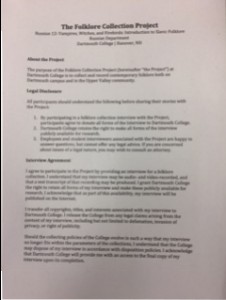
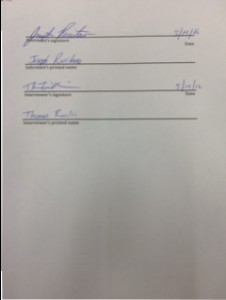
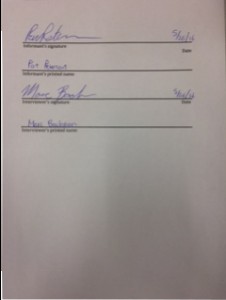
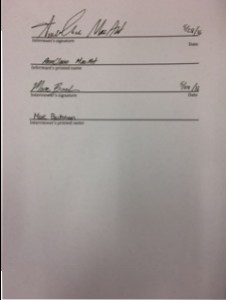
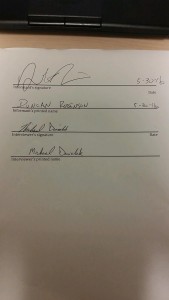
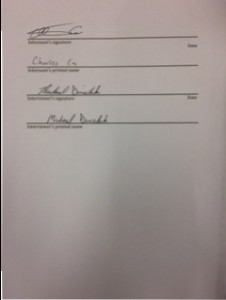

 Welcome Song Initiation/Ritual
Welcome Song Initiation/Ritual “TDX-mas” Initiation/Ritual
“TDX-mas” Initiation/Ritual